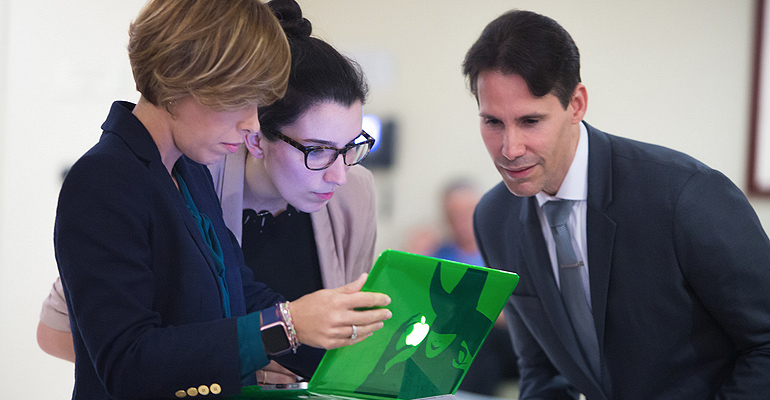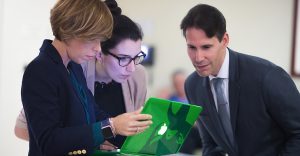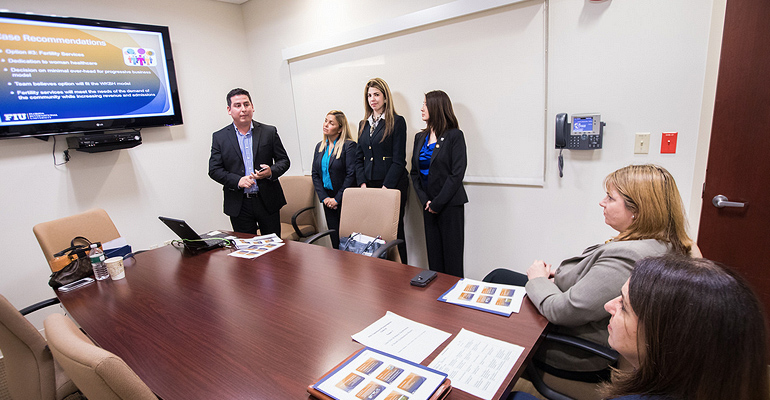
As part of her final project in FIU’s Healthcare MBA program, healthcare professional Kim James was presented with a challenge: how could a management team most effectively streamline efficiency and continuity of patient care by using multiple providers, including South Florida hospitals, agencies and non-profits, in meaningful partnerships?
That challenge shaped her student management team’s presentation, the capstone project of the College of Business’ Healthcare MBA degree. The team’s proposal: don’t wait for patients’ needs to overwhelm available resources; start building formal ties, partnerships and communication strategies among multiple organizations right away.
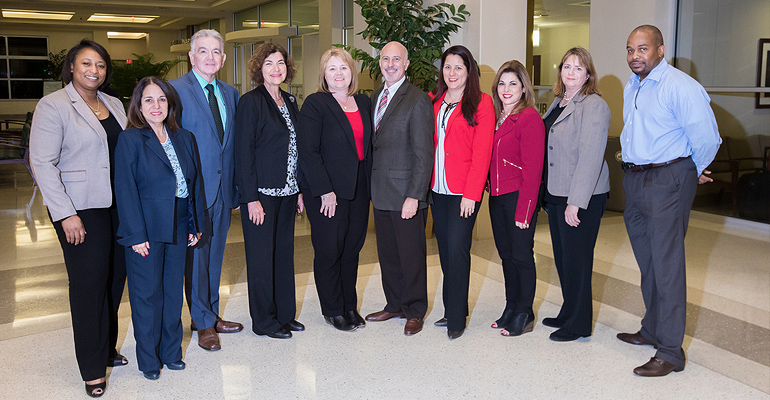
The idea had a receptive audience on December 8, 2016 when James and 17 other soon-to graduate HCMBA students had a chance to showcase their problem-solving skills before Javier Hernandez-Lichtl, CEO of West Kendall Baptist Hospital, and other hospital executives and administrators, joined by faculty from the FIU Healthcare MBA program. It was the culmination of a collaboration between the hospital and FIU, spearheaded by Miriam Weismann, the program’s academic director.
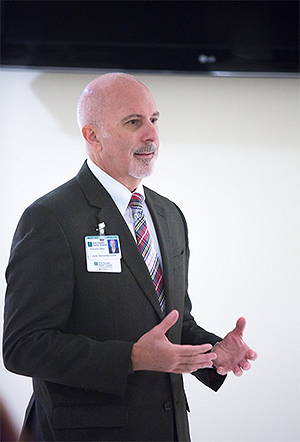
The student analyses were rooted in a case study co-authored by Weismann and hospital administrators, including Hernandez-Lichtl. Each team crafted a health policy analysis paper, based in part on data and information from West Kendall Baptist Hospital itself. The case study offered several different problems from which students could chose to craft solutions. The topics ranged from how to maximize resources for patient health to increasing hospital revenue flows.
“This was so eye-opening, a wonderful experience,” said James, who works in administration at Community Health of South Florida. The opportunity to confer with hospital leadership made her coursework come alive, she added. “It gave us perspective in the realities of business. Issues sometimes sound simple, but when you are out in practice, things are more complicated.”
Weismann reaches out for learning collaborative.
The program builds on a collaboration, initiated by Weismann, that began more than a year ago between the HCMBA program and West Kendall Baptist Hospital, which has each student management team undertake a unique experiential learning project at the hospital as they approach graduation.
“We wanted to provide added value to the students in the program and to West Kendall Baptist in a way that enhances both our interests,” Weismann said. “We recognize that this relationship, and developing these projects, is really what integrated education is all about.” She believes it’s a unique approach among national HCMBA programs.
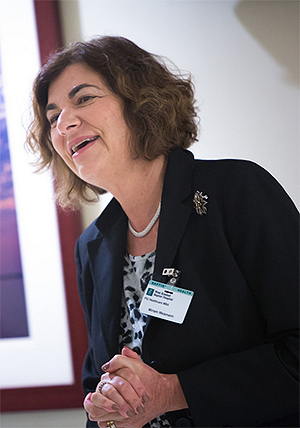
The experiential project presents a golden opportunity for West Kendall Baptist as well, said CEO Hernandez-Lichtl. “I am thrilled and excited at the partnership,” he said. “We were all students first, and this is a great way for West Kendall Baptist to give back to future talent in healthcare administration.”
“It is great synergy when you have two organizations that trust each other and have a common passion.” He gave much of the credit to Weismann, noting “Miriam is an out-of-the-box teacher and an incredible leader.” Weismann credits the success of the partnership to the amazing time commitment of management and administrators at the hospital, noting “Javier Hernandez-Lichtl is a visionary and understands the importance of mentoring leaders in the field.”
The real-world case experience is already helping students like Dr. Luis Saenz, the medical director for managed care plans at the AIDS Healthcare Foundation, an advocacy, prevention and resource non-profit. “By coincidence, we picked an option that is exactly like some of the things I’m dealing with,” said Dr. Saenz.
His team’s chosen problem involved patients who come into the emergency room and are neither discharged nor admitted, but are kept under observation, a status that Medicare (and other insurance plans) will only underwrite for 48 hours. It can lead to revenue loss for hospitals, and more out-of-pocket cost for the patient. Saenz’ group suggested increased doctor and nurse patient evaluations or hiring an expert in observation status as part of the team.
He said that he loved the hospital component of the program, and enjoyed giving the presentation. “It was a real-life experiment,” he said, adding that the WKBH nurse practitioner from the observation unit welcomed their input.


